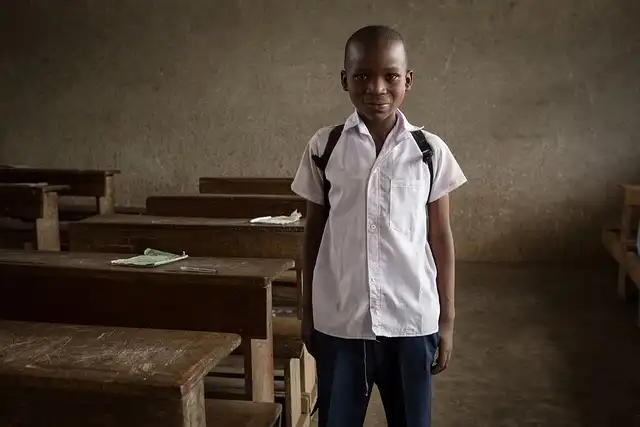How educators can help students learn to resolve conflict and move forward

Mulvey also suggests that schools consider working with restorative justice and peer mediation partners to help classes share and converse with those who have engaged in harmful behavior rather than just handing out consequences and punishment.
She states instructors might think about bringing in problem resolution skills and urge perspective-talking throughout the class. A history instructor might ask pupils to believe concerning what a historical figure may have really felt during specific minutes in time.
One method Randall likes to share is from CASEL’s co-founder Roger Weissberg and constructs from a “stop-light” technique. When there is a problem, someone quits, takes a breath, thinks about their feelings, takes into consideration the circumstance, and takes a path that has the very best repercussions.
“What actions and support do we require for a schoolmate to get them back into the area while appreciating the pupil that was hurt,” she states. “It has to do with the restorative practices that are very important for all celebrations.”.
An additional approach, claims Pamela Randall, senior team consultant for the Collaborative for Academic, Social and Emotional Knowing, is to produce a common agreement with trainees at the beginning of an academic year. While this doesn’t make sure disputes will never ever develop, it serves as a building block to a team neighborhood loaded with respect.
Country wide, concerning 19% of trainees in between the ages of 12 and 18 reported they were harassed in the 2021-22 academic year. Covering the list consists of being the subject of rumors, being called names or insulted, and literally being shoved, pressed or altercation on, according to theNational Center for Education and learning Stats.
Suzanne Freedman is a big fan of the kids’s book “Pasta in a Hot Dog Bun”– not for the food selection suggestion, but also for what the tale educates concerning mercy. In the story, a young girl bullied for her hair and her choice of lunches treats her bully with generosity when he requires assistance.
When pupils work to comprehend one more person’s habits, they can more effectively deal with dispute and forgive, states Suzanne Freedman, a teacher of human development and social mercy at the University of Northern Iowa.
LumiNola by means of Getty Images
She praises the instance of one superintendent that had pupils write an essay about what they did instead of designating them detention or having them promptly apologize without comprehending the various other party’s feelings.
Apologies are essential to helping trainees that really feel harmed move forward, says Kelly Lynn Mulvey, an associate professor of psychology at North Carolina State University. Mulvey has actually located in study that data shows students really feel much better after and appreciate apologies.
Freedman, that has developed an open resource grade school educational program called “The Nerve to Forgive,” states that prior to forgiveness can happen, pupils require to consider what might have brought them into problem to begin with– which could simply be feeling pain. Freedman says teachers need to guarantee students that every person gets pain, and the trick is discovering how to manage hurt as opposed to holding on to anger.
As opposed to urge pupils to say sorry promptly and for others to accept the apology, Mulvey, a former secondary school educator in North Carolina’s Durham Public Schools, recommends that instructors might have the ability to take steps to minimize problems in their classroom.
Other problems that can develop amongst schoolmates– from primary to high school– are differences and social characteristics where sensations can cause aggravation, rage and acting out. There are several strategies on exactly how to help students overcome these minutes, experts claim. Educators claim these courses can aid educate trainees exactly how to forgive and apologize– and to avoid some arguments to begin with.
“We begin with temper,” says Freedman. “It is very important that kids know that temper is a natural and regular sensation. It’s what you make with your temper that’s taken into consideration negative and great, and we discuss healthy and balanced methods to express temper.”
Freedman additionally warns teachers versus pushing students to quickly forgive and ask forgiveness when a dispute has occurred, no matter whether the conflict is a spoken dispute or intimidation. She states that by speeding up with that procedure, pupils might not have time to possess an apology or prepare to approve one and have to swallow their sensations.
To help trainees accept that temper is regular, Freedman encourages educators to refer to these feelings as “uneasy feelings.” She has issues that by calling these emotions unfavorable, pupils begin to think that sensation unfortunate or upset or having anxiety is not typical, which can create various other concerns.
Randall cautions that these agreements should not be long. She states something more practical is 5 or possibly 6 things that the course really feels comfortable accepting. Educators still need to be ready for when disagreements emerge.
To Freedman, it’s clear: Bullying is wrong and must not be endured. Maria Dismondy’s book shows a critical minute that any kind of pupil– or any type of grown-up– can adhere to, which is exactly how comprehending another individual’s habits can aid you forgive.
There are multiple techniques on exactly how to assist students function through these minutes, experts state. Educators claim these courses can aid educate trainees exactly how to forgive and ask forgiveness– and to stop some differences in the first area.
“Children ought to be encouraged to ask forgiveness when they feel it and imply it,” Freedman states. “Then the kid victim might say, ‘I value your apology, and I am working on forgiving you.
“Specifically with bullying, which can be a power dynamic,” Mulvey says, “the target needs to have some claim to be able to have and decrease company, as they might not feel comfy, particularly if this has been repeated.”.
“We start with anger,” states Freedman.” Kids must be urged to apologize when they feel it and suggest it,” Freedman states. A background teacher could ask trainees to assume regarding what a historic number might have really felt during specific minutes in time.
Mulvey also recommends that schools consider working with restorative justice and peer mediation partners to aid courses share and converse with those who have actually engaged in damaging actions as opposed to simply giving out consequences and penalty. However, she keeps in mind, students need to never be required to involve with someone who has actually bullied them, as they need to feel they also have some power while doing so.
1 Getty Images Suzanne2 Images Suzanne Freedman
3 Northern Iowa
« An AI mentor, robots, and a model that can ‘brainstorm’: This week in new AI launchesA lethal tornado struck. How did the district respond and recover? »
